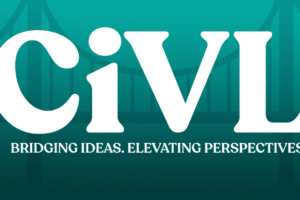Dr. Mary Ruwart is a leading expert in libertarian communication. In this column she offers short answers to real questions about libertarianism. To submit questions to Dr. Ruwart, see end of column.
 QUESTION: If the private sector can provide education better and cheaper than the government, why aren’t they doing it? Nothing is stopping private industry from providing better service than government schools to poor children. They can do this right now and it is 100% legal. So why don’t they?
QUESTION: If the private sector can provide education better and cheaper than the government, why aren’t they doing it? Nothing is stopping private industry from providing better service than government schools to poor children. They can do this right now and it is 100% legal. So why don’t they?
MY SHORT ANSWER: Actually, providing education to poor or even middle-class children is NOT 100% legal. Parents who send their children to school are required by law to utilize schools that meet specific requirements, such as certified teachers, accreditation, and specific types of curricula.
Even home-schoolers must abide by regulations, which differ from state to state. If parents don’t follow these regulations, their children can be taken from them by Social Services, even if the children can ace every standardized test.
In spite of these hurdles, the private sector already does provides better education for many poor and disadvantaged. The typical Catholic inner-city school takes 88% of all applicants, many of whom are not even Catholic. About 20% of Catholic schools accept students expelled from public schools. Even after adjusting for race, family background, and social class, the average Catholic high school student gained three years of learning above that of the average public school student. The educational gap between minorities and whites narrows for minorities in Catholic schools.
Ombudsman Educational Services, specializing in drop-outs, boasts an 85% graduation rate. Students advance one grade level for each 20 hours in this program, while spending half as much as the public schools. A quarter of the students at the renowned Marva Collins Preparatory School in Chicago (recently closed) had learning disabilities, yet almost all students read one level above their grade. Tuition was less than a third of what public schools in the area received per pupil.
Of course, pre-schoolers are unaffected by educational regulations. Consequently, the private sector can provide advertiser-sponsored Sesame Street and other educational programs that are essentially free for the user. Likewise, the Internet provides educational resources for just about anyone, for low or no cost, including virtually everything taught in K-12. However, even if a child had the equivalent of a college degree from such a learning experience, they still would be required by law to attend a government-regulated school or regulated home school.
There is hope. The innovative private sector may eventually overcome all of these government-created obstacles. Today many experts say we are on the verge of a revolution in cheap or free online education. One explosive new example of this is Khan Academy, which describes itself as “a not-for-profit with the goal of changing education for the better by providing a free world-class education for anyone anywhere.”
References:
Catholic Schools and the Common Good by A.S. Bryk, V.E. Lee, and P.B. Holland (Cambridge, MA: Harvard University Press, 1993), pp. 246-247; 262-263; 286.
Educational Choice for Michigan by L. Reed and H. Hutchinson, (Midland, MI: Mackinac Center for Public Policy, 1991), p. 49.
J.G. Cibulka, T.J. O’Brien, and D. Zewe, Inner-City Private Elementary Schools: A Study (Milwaukee, WI: Marquette University Press, 1982), p. 137.
“Do Private Schools Serve Difficult-to-Educate Students?” by J.R. Beales and T.F. Bertonneau, Mackinac Center for Public Policy, October 1997.
C. Lochhead, “A Lesson from Private Practitioners,” Insight, December 24, 1990, pp. 34-36;
“Choice, Charters, and Privatizations” by D.W. Kirkpatrick, schoolreport.com, September 1996.
“A Canadian’s Perspective on Milwaukee’s Choice Program,” School Reform News, June 1999, p. 7.
T. Hetland, “Learning Thrives at Westside Prep,” Heartland Perspective, January 15, 1993, p. 2.
LEARN MORE: Suggestions by Liberator Online editor James W. Harris for further reading and viewing on this topic:
* “The Education Visionary: Khan Academy founder Salman Khan on the future of learning,” interview by Nick Gillespie, Reason magazine, February 2013 issue
Excerpt: “[T]he nonprofit Khan Academy [offers] free online lectures and tutorials that are now used by more than 6 million students each month. More than 3,000 individual videos, covering mathematics, physics, history, economics, and other subjects, have drawn more than 200 million views, generating significant funding from both the Bill & Melinda Gates Foundation and Google. Khan Academy is one of the best-known names in online education and has grown to include not just tutorials but complete course syllabi and a platform to track student progress.”
* VIDEO: “Khan Academy Founder Talks Radical Education Reform and The One World Schoolhouse,” interview by Nick Gillespie & Joshua Swain, Reason TV, November 9, 2012. Reason TV’s Nick Gillespie talks with Khan about how to radically transform American education, why technology is never the solution reformers expect, and how massive amounts of money go missing every day in conventional public schools. About 14 minutes.
* The Alliance for the Separation of School & State: This website offers a wealth of information and arguments concerning private alternatives to government education, and how this will especially benefit the poor and disadvantaged. The organization was formed by Marshall Fritz, a pioneer in the field of freedom in education (and also founder of the Advocates for Self-Government).
* * * * * * * * * *
Got questions? Dr. Ruwart has answers! If you’d like answers to YOUR “tough questions” on libertarian issues, email Dr. Ruwart
Due to volume, Dr. Ruwart can’t personally acknowledge all emails. But we’ll run the best questions and answers in upcoming issues.
Dr. Ruwart’s previous Liberator Online answers are archived in searchable form.
Dr. Ruwart’s brand new book Short Answers to the Tough Questions, Expanded Edition is available from the Advocates, as is her acclaimed classic Healing Our World.

























